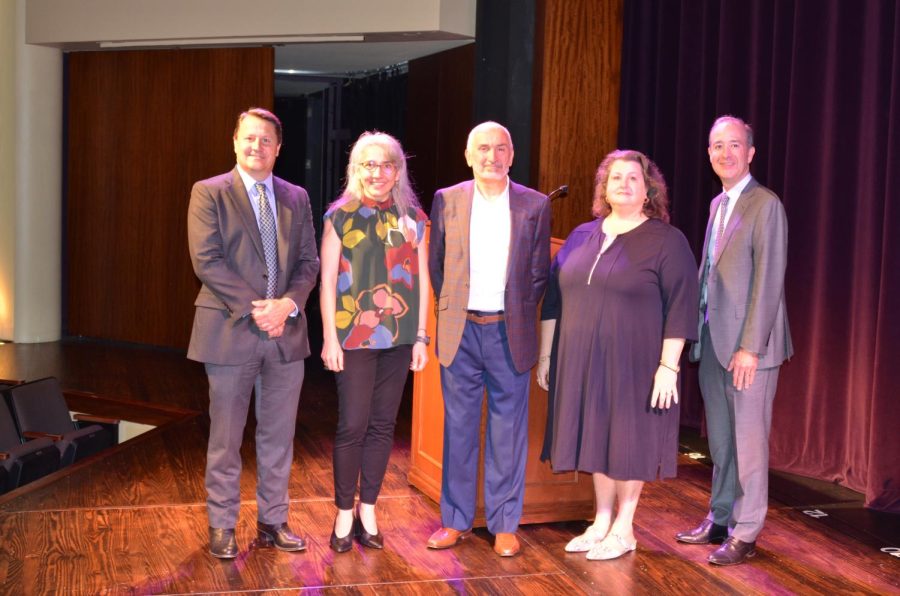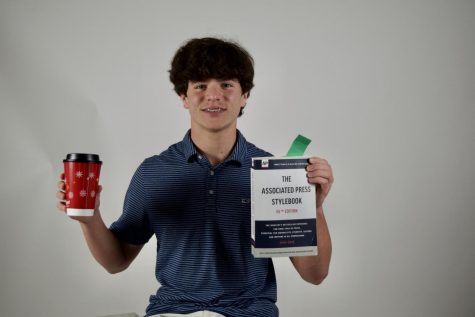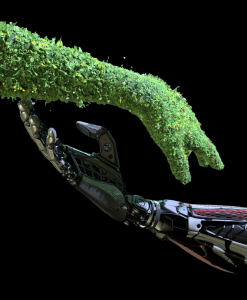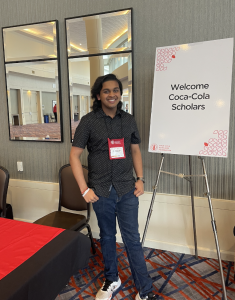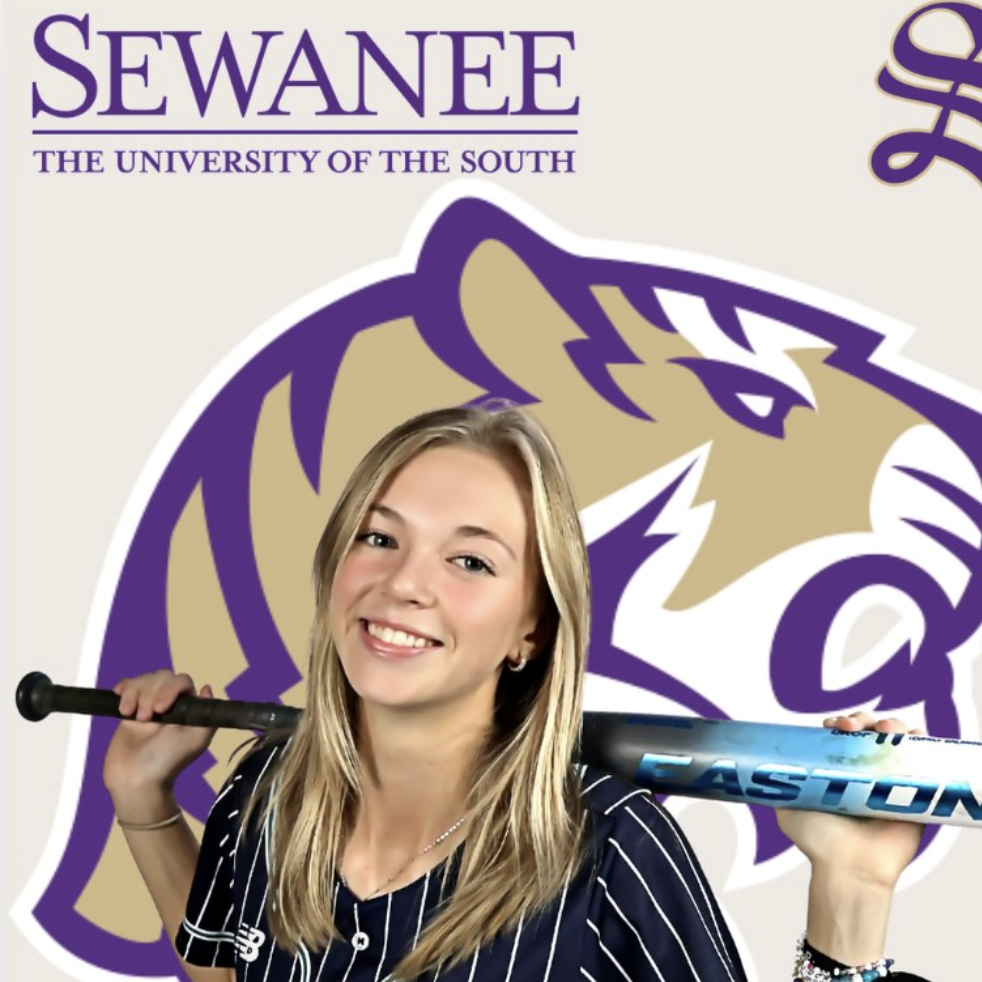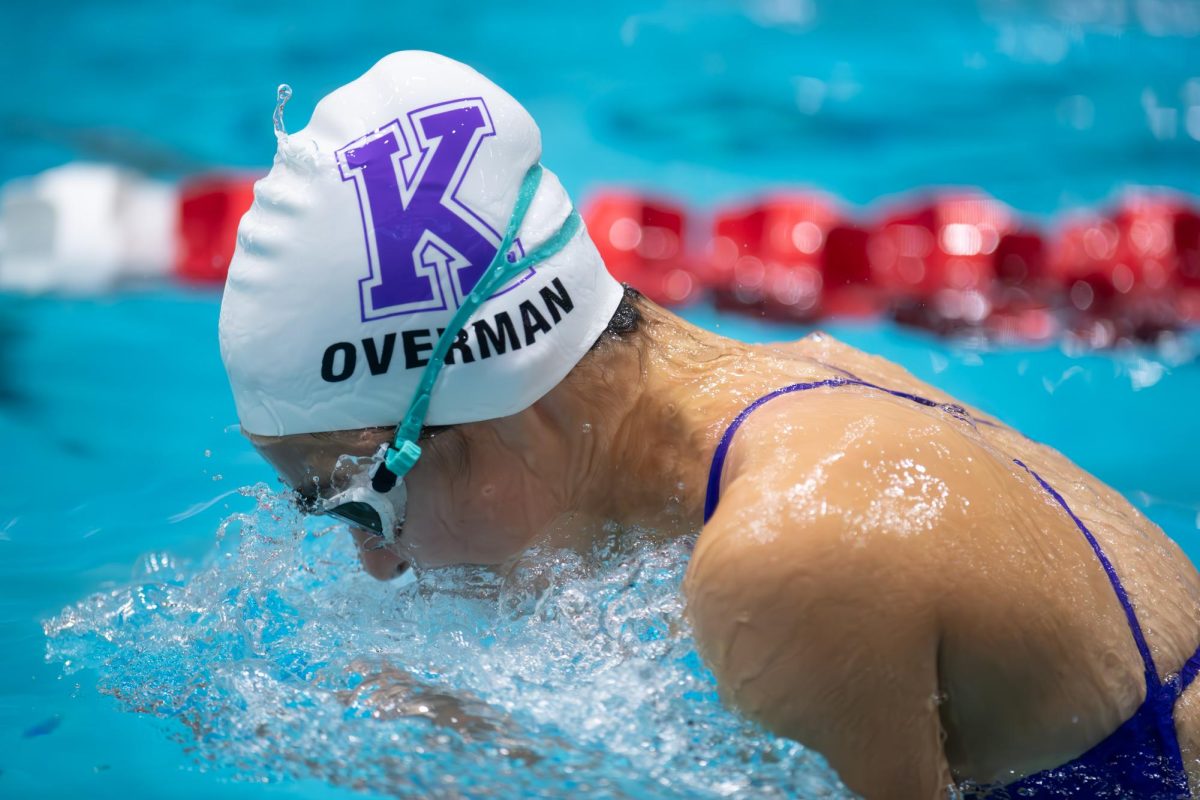Rice professor discusses intersection of engineering and medicine with Upper School
Dr. Behram Aazhang poses with Mr. Eades, Dr. Clayton and members and friends of the Papadopoulos family.
April 12, 2023
Engineers and doctors can work together to solve world problems through the field of neuro-engineering. That is exactly the specialty of presenter Dr. Behnaam Aazhang, who spoke at a recent assembly.
Dr. Aazhang spoke about his most recent work, which focuses on mitigating mental health disorders such as epilepsy, stroke and depression, during a presentation at the Upper School at an assembly on April 10.
“Neurons transmit impulses to the muscles all over our body, and a way to look closer at and modulate this is through the use of electrodes,” Dr. Aazhang said. “One example is in pacemakers.”
Dr. Aazhang walked students through the basic steps of identifying irregularities in electrode firing patterns to triangulate (using cosines and other applications of calculus and trigonometry) and modulate an area where a stroke has occurred.
“Do we know why the stroke starts?” Dr. Aazhang asked the audience, using a pointer to indicate the area between two black lines where the frequency of the electrodes spikes.
Some students shook their heads.
“Do we know why it ends?” he asked.
More heads shook “no.”
“Correct. No, we don’t,” he said. “But we as neuro engineers can tell where it happens and at what time, which matters equally to the why. That way you can tell someone to stop driving or brace themselves when they are about to get a stroke.”
Dr. Aazhang spoke to students in smaller classroom settings for 80 minutes, discussing the applications of his “identify and modulate” approach on mitigating Alzheimer’s and depression.
His research team has papers and patents pending for this theory. The next step, he said, is animal trials.
“I would love if we could just fit electrodes to humans and get started, but there’s this organization called the FDA,” he said, cueing laughs. “We start by testing on animals.”
Dr. Aazhang serves as the J.S. Abercrombie professor in electrical and computer engineering at Rice University and director of the Rice Neuroengineering Initiative. He was named the 2022-23 Papadapoulous Fellow, a program that brings professionals from across scientific fields to present at Kinkaid.
Born in Iran, Dr. Aazhang immigrated to the U.S. during the country’s revolution in 1979, receiving his bachelor’s., master’s and doctoral degrees from the University of Illinois Urbana-Champaign.
He began his career in academia at Rice University in 1985, but only 20 years ago did he first begin exploring the link between engineering and medicine.
“I am an engineer, and proudly so,” Dr. Aazhang said. “But I have always been interested by the question of how engineers can help doctors when patients do not respond to pharmaceutical treatments. I have devoted much of my career to exploring this.”
Dr. Aazhang works with a team of doctors at Baylor College of Medicine — both students and faculty — and engineers at the Rice Bioengineering Initiative.


